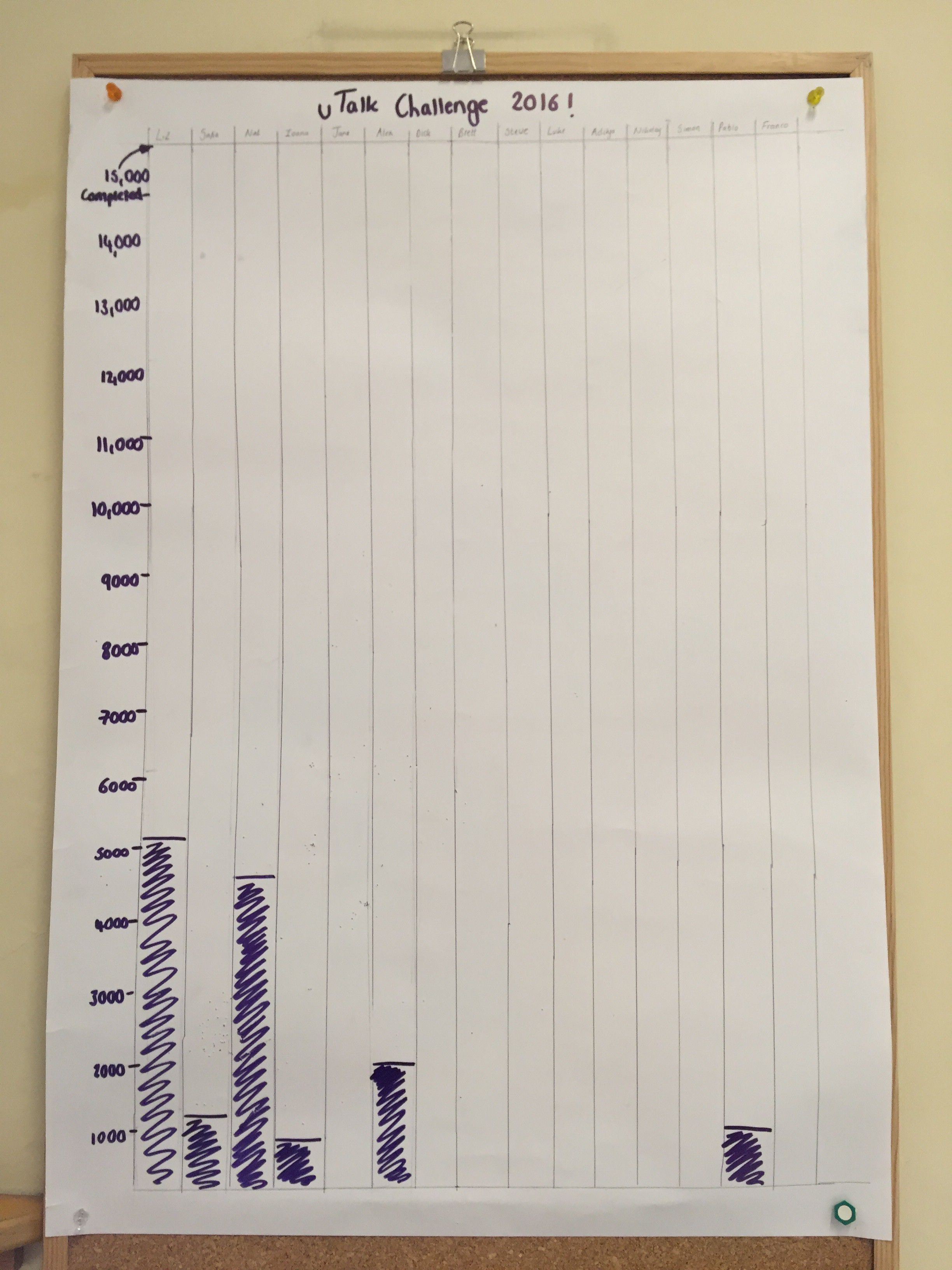Let the cat out the bag…
The world has become slightly obsessed with cat videos and cat Instagram accounts (have you seen the video where cats see a cucumber? Trust me, it’s worth a watch). They are seriously cute! I am a massive cat lover and my phone is filled with photos of my cat, Marcella.
And when it comes to the English language, we love to use cats in idioms; you may find some are more difficult than others to guess the meaning of.
Here are some examples:
Has the cat got your tongue?
This basically means why are you being so quiet? Why aren’t you speaking? Sometimes associated with the idea that you’ve done something wrong and don’t know what to say to get out of the situation.
It’s raining cats and dogs
It’s raining (like it does A LOT in England) and it’s raining really hard.
Look what the cat dragged in
This is a very catty comment (see what I did there) this is said to someone when you don’t particularly like him or her. You’re making a point to say you don’t want them there in the same place as you.
There isn’t room to swing a cat
Okay I don’t know why you would want to swing a cat but this idiom means, it’s a really small space.
Put the cat among the pigeons
This is when you say something or do something that causes trouble. This could be expressing a different opinion to people in a group who all think the same thing.
Let the cat out of the bag
You’ve said something you shouldn’t have said, a secret maybe. You’ve said it to someone you shouldn’t have, which means you’ve essentially ‘let the cat out of the bag’.
The cat’s pyjamas/whiskers
This is an expression that means something is fabulous or excellent, similar to the ‘bee’s knees’.
If you have any other fun cat-related idioms (or any great cat videos to share with us), let us know!
Alex
#uTalkChallenge – how did we do in week 1?
So, we’re a week into the uTalk Challenge… Thank you to everyone who’s thrown themselves so enthusiastically into learning a new language this month – we’ve been really impressed with your commitment and fantastic scores.
You may remember that we EuroTalkers are also joining in, learning a variety of languages for lots of different reasons. And because we’re a competitive bunch, we’ve set up a scoreboard in the office – right now, Liz and Nat (both learning Welsh) are in the lead, but that could all change over the weekend…
Each week, we’ll be sharing a video update in which a few of us will share what we’ve been learning. For week 1, we’ve got Safia (learning Mandarin Chinese), Ioana (learning Argentinian Spanish) and Liz (learning Welsh). How did we do?
If you’d like to share your own progress, please drop us an email to challenge@eurotalk.com, or – even better – send us your own video, like this brilliant one from Patricia!
Good luck, enjoy and have a great weekend 🙂
Can you whistle a phrase?
A few days ago, Gloria stopped by my desk with a burning question: had I ever heard of the whistling languages?
Proudly, I was able to answer that I had, but quickly became deflated when we realised that neither of us had the slightest idea of how they work. Was there a whistling alphabet with different tones for vowels and consonants? Do you just learn whole phrases by heart for limited daily use? Clearly there was a very large hole in our knowledge, and we immediately set about trying to fill it in.
For those of you who don’t know what we’re talking about, whistling languages are those which have developed (mostly) in areas of extreme terrain, where communication by speech would be impossible but where whistles can carry over large distances (up to a couple of miles). Perhaps most well known is the whistling language Silbo Gomero (of La Gomera) which, once endangered, is now being successfully preserved through mandatory classes at school. The way the language actually works is that the whistled phrase resembles, in intonation and pitch, the phrase in the original language – Spanish, in this case. This means that users can improvise conversations in the same way as with a spoken language, even using modern vocabulary which may not previously have existed.
Gloria has actually been to La Gomera and seen first-hand how they achieve the incredible variations in the whistling language: not just with pursed lips, but with fingers to amplify the sound and change the tone. This is all very impressive to me, but it turns out that Gloria is a bit of an expert at whistling, and graciously offered to demonstrate a few simple techniques. Although it’s not the same as having a whole, developed whistling language at your disposal, she does have a few ‘set phrases’ which she not only uses in specific situations but which are understood by people and – in one case – birds too! Watch to the end to hear her top tip on how to make your whistles extra loud…
If you think you can rival Gloria for expertise in whistling, or have a different whistle you actually use in everyday life, we’d love to hear about it!
Nat
English Idioms: Halloween special [video]
Happy Halloween!
As is EuroTalk tradition, we celebrated the spookiest day of the year (a day early) with fancy dress, pumpkin carving and other Halloween-themed fun.
We also took the opportunity to put together this little video of Halloween-themed English idioms, starring members of the (endlessly talented, we’re sure you’ll agree) EuroTalk team.
We’re expecting our Oscar nomination any day now.
We really hope you love this video as much as we enjoyed making it. If so, please share it with friends, and let’s keep the madness going 😉
And we’re always open to suggestions, so if you have idioms – English or other languages – that you’d like to see immortalised in video, we’d love to hear them!
How do you say Llanfairpwll…?
Everyone was blown away the other day when Liam Dutton managed to effortlessly pronounce the longest ever Welsh place name on live TV: Llanfairpwllgwyngyllgogerychwyrndrobwllllantysiliogogogoch.
Anything he can do…
I don’t know about you, but here at the EuroTalk office we enjoy a healthy challenge, and this looked like just the sort of thing to get our teeth into! For all those of you who’ve seen our video… Okay, maybe it didn’t go exactly according to plan, and didn’t sound entirely as fluent as Liam Dutton’s version, not to mention that our varying collections of vaguely Welsh-sounding syllables probably didn’t mean anything at all in Welsh, let alone bore a resemblance to the actual meaning of the word, which is (take a breath): ‘Saint Mary’s Church in the hollow of the white hazel near a rapid whirlpool and the Church of St. Tysilio of the red cave’.
Still, practice makes perfect, and this was just our first time. If anyone would like to try to do it better than us (which is probably not too much to ask), why not enter out competition to win a FREE Premium Welsh uTalk app. We’ll be picking the winner based on the creativity of the video, and your attempt to pronounce the word. To enter, tweet us @EuroTalk, post it on our Facebook page or email it to challenge@eurotalk.com by Friday 25th September.
So how should we have pronounced it?
To make it slightly easier, here’s a few pointers we used as to how to pronounce it:
1. It helps to break the word down into bite-sized chunks: Llan – fair – pwll – gwyn – gyll – go – ger – ych – wyrn – drob – wll – llan – ty – silio – go – go – goch
2. Some of the letters have different pronunciation in Welsh to how you would say them in English. For example:
- the ‘f’ in ‘fair’ is pronounced more like a ‘v’, to make ‘vire’
- the ‘y’ in ‘gwyn’ i pronounced more like an ‘i’, to make ‘gwin’
- the ‘w’ in ‘pwll’ is more of an ‘oo’, to make ‘pooll’ AND
- the ‘ll’ in ‘pwll’ is more of an aspirated l (keep the tip of your tongue on the roof of your mouth as you say ‘l’, then blow the air over the top and sides of your tongue)
- the ‘ch’ in ‘goch’ is the same as in the Scottish ‘loch’
Taking that all into account, you end up with something which to English speakers looks a bit more like this:
Chlan- vire- puchl- gwin- guchl- go- ger- uch- wirn- drob- uchl- chlan- ti- silio- go- go -goch
So now that you know it, why not have a go at recording it yourself?
Nat




